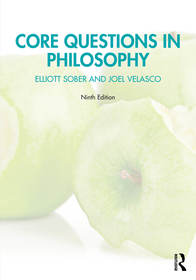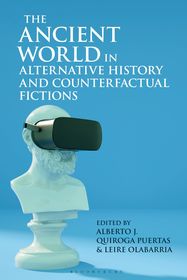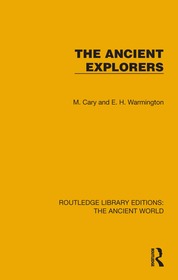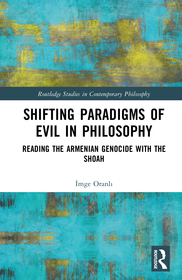
Core Questions in Philosophy
- Publisher's listprice GBP 65.99
-
31 526 Ft (30 025 Ft + 5% VAT)
The price is estimated because at the time of ordering we do not know what conversion rates will apply to HUF / product currency when the book arrives. In case HUF is weaker, the price increases slightly, in case HUF is stronger, the price goes lower slightly.
- Discount 10% (cc. 3 153 Ft off)
- Discounted price 28 374 Ft (27 023 Ft + 5% VAT)
Subcribe now and take benefit of a favourable price.
Subscribe
31 526 Ft

Availability
Not yet published.
Why don't you give exact delivery time?
Delivery time is estimated on our previous experiences. We give estimations only, because we order from outside Hungary, and the delivery time mainly depends on how quickly the publisher supplies the book. Faster or slower deliveries both happen, but we do our best to supply as quickly as possible.
Product details:
- Edition number 9
- Publisher Routledge
- Date of Publication 12 December 2025
- ISBN 9781032794259
- Binding Paperback
- No. of pages376 pages
- Size 254x178 mm
- Language English
- Illustrations 29 Illustrations, black & white; 29 Line drawings, black & white; 5 Tables, black & white 700
Categories
Short description:
In this 9th edition of Core Questions in Philosophy, Elliott Sober and Joel Velasco use an engaging lecture-style format to show students how philosophy is best used to evaluate many different kinds of arguments and to construct sound theories.
MoreLong description:
In this 9th edition of Core Questions in Philosophy, Elliott Sober and Joel Velasco use an engaging lecture-style format to show students how philosophy is best used to evaluate many different kinds of arguments and to construct sound theories. Well-known historical texts are discussed, not as a means to honor the dead or merely to describe what various philosophers have thought, but to engage with, criticize, and even improve ideas from the past. In addition—because philosophy cannot function apart from its engagement with the wider society—traditional and contemporary philosophical problems are brought into dialogue with the physical, biological, and social sciences. Text boxes highlight key concepts, and review questions, discussion questions, and a glossary of terms are also included.
Core Questions in Philosophy has served as a premier introductory textbook for three decades, with updates to each new edition.
Key updates to this 9th edition include:
- A new concluding chapter on the meaning of life.
- The integration of non-Western thinkers throughout the book.
- Expanded discussions on utilitarianism, virtue ethics, free will, and epistemology.
- Updated material from philosophy and empirical research throughout.
Revisions to the online list of recommended resources include:
- Additional recommendations of supplementary readings, with updated source links to all reading material.
- New recommended videos and podcasts, all organized by their relevance to each chapter in the book.
Praise for the previous editions:
"A really excellent introduction to philosophy does the following: meets the student at their level, then takes them up a notch, and approaches traditional topics in unique and interesting ways. This book does those things."
-- Fred Adams, University of Delaware
MoreTable of Contents:
Part I: Introduction 1. What Is Philosophy? 2. Deductive Arguments 3. Inductive and Abductive Arguments Part II: Philosophy of Religion 4. Aquinas’s First Four Ways 5. The Design Argument 6. Evolution and Creationism 7. Can Science Explain Everything? 8. The Ontological Argument 9. Is the Existence of God Testable? 10. Pascal and Irrationality 11. The Argument from Evil Part III: Theory of Knowledge 12. What Is Knowledge? 13. Descartes’ Foundationalism 14. The Reliability Theory of Knowledge 15. Justified Belief and Hume’s Problem of Induction 16. Can Hume’s Skepticism Be Refuted? 17. Beyond Foundationalism 18. Locke on the Existence of External Objects 19. Probability and Bayes’s Theorem Part IV: Philosophy of Mind 20. Dualism and the Mind/Body Problem 21. Logical Behaviorism 22. Methodological Behaviorism 23. The Mind/Brain Identity Theory 24. Functionalism 25. Freedom, Determinism, and Causality 26. A Menu of Positions on Free Will 27. Compatibilism 28. Psychological Egoism Part V: Ethics 29. Ethics—Normative and Meta 30. The Is/Ought Gap and the Naturalistic Fallacy 31. Observation and Explanation in Ethics 32. Conventionalist Theories 33. Utilitarianism 34. Kant’s Moral Theory 35. Aristotle on the Good Life 36. The Meaning of Life
More










